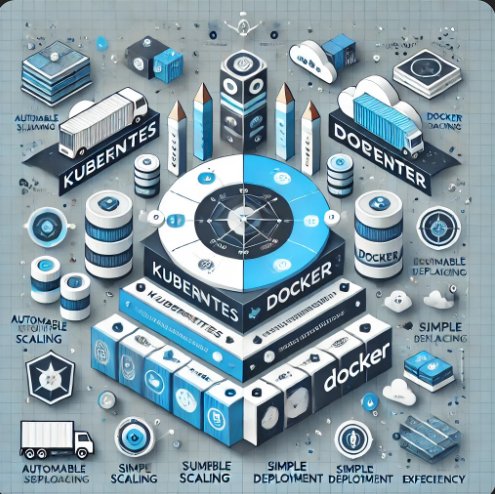Kubernetes vs Docker: Key Differences, Benefits & Use Cases
Explore Kubernetes vs Docker in detail. Understand their differences, benefits, and how they complement each other to optimize container orchestration for DevOps workflows.

Introduction
In the realm of containerization, Kubernetes and Docker have emerged as pivotal technologies that shape how applications are deployed and managed. While they share some overlapping functionalities, their roles are distinct. Understanding their differences and use cases is crucial for choosing the right tool for your project. This article delves into the key contrasts between Kubernetes and Docker, their advantages, and how they work together to streamline DevOps workflows.
What Is Docker?
Docker is an open-source platform designed to automate the deployment of applications as lightweight, portable containers. These containers bundle application code, runtime, system tools, and libraries, ensuring consistency across development, testing, and production environments.
Key Features of Docker
-
Portability: Ensures applications run consistently on any system supporting Docker.
-
Efficiency: Reduces overhead by sharing the host OS kernel.
-
Ease of Use: Simplifies creating, managing, and deploying containers.
What Is Kubernetes?
Kubernetes, often abbreviated as K8s, is an open-source container orchestration platform developed by Google. It automates the deployment, scaling, and management of containerized applications across clusters of machines.
Key Features of Kubernetes
-
Scalability: Automatically scales applications based on demand.
-
Load Balancing: Distributes traffic across containers for optimal performance.
-
Self-Healing: Automatically restarts failed containers.
Kubernetes vs Docker: Key Differences
1. Purpose
-
Docker: Primarily focuses on building, packaging, and running containers.
-
Kubernetes: Manages and orchestrates clusters of containers.
2. Complexity
-
Docker: Simple to set up and use for container creation and management.
-
Kubernetes: Requires a steeper learning curve due to its extensive features and configuration.
3. Scalability
-
Docker: Supports manual scaling of containers.
-
Kubernetes: Offers automated scaling, making it ideal for large-scale applications.
4. Networking
-
Docker: Relies on Docker’s native networking for container communication.
-
Kubernetes: Provides advanced networking solutions like service discovery and DNS.
How Kubernetes and Docker Work Together
Contrary to popular belief, Kubernetes and Docker are not direct competitors. Kubernetes often uses Docker as its container runtime, managing Docker containers across a cluster. Together, they create a robust ecosystem for deploying and managing containerized applications.
Benefits of Using Kubernetes with Docker
-
Streamlined container orchestration.
-
Enhanced application scalability and availability.
-
Improved resource utilization.
Use Cases
Docker
-
Local development environments.
-
Small-scale application deployment.
Kubernetes
-
Large-scale applications requiring high availability.
-
Continuous delivery pipelines with microservices architecture.
Conclusion
Choosing between Kubernetes and Docker depends on your specific needs. Docker excels in simplifying containerization, while Kubernetes shines in orchestrating complex, distributed applications. Leveraging both can unlock unparalleled efficiency and scalability in your DevOps workflow.

 Ashish Kumar
Ashish Kumar 













